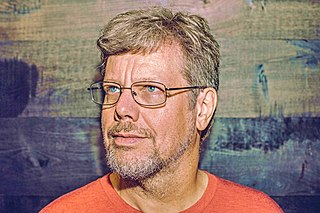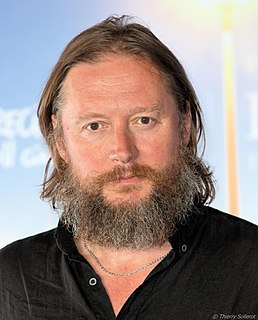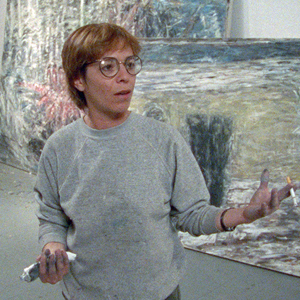A Quote by Adam Savage
These are people from everywhere, from Lawrence Livermore and JPL and Sandia National Labs, the FBI, all over the place, real scientists who see what we're doing, and they consistently thank us. "I agree your results aren't always right," they'll say, "but your methods are clearly showing that science is a re-creative process, and it's an interesting process because it's messy, and no other shows show that."
Related Quotes
The creative process is just a process and you can't really separate it from life. Growing your hair is a creative process. Your body is creating hair. Being alive is a creative process. Whether it's growing something in the garden or growing a song, the material accumulates. It's the process of being alive; it's the passage of time. Things change.
I think I got a complete picture of what the lives of scientists are like. My father is of the opinion that if scientists are allowed to follow their nose, eventually it results in something. Unfortunately that doesn't always happen. What I came out of it with, in a non-cynical way, was that the scientific process is as messy as anything else. There's nothing wrong with that. That's just the way it is.
It's just difficult to see that people want to be like the actors and the performers and the politicians who are - who they see all the time, but the people that are probably having the most fun are the writers and the directors and the producers and the scientists, right, the people in the back that are getting to do the creative process.
The work of science has nothing whatever to do with consensus. Consensus is the business of politics. Science, on the contrary, requires only one investigator who happens to be right, which means that he or she has results that are verifiable by reference to the real world. In science consensus is irrelevant. What is relevant is reproducible results. The greatest scientists in history are great precisely because they broke with the consensus.
I generally enjoy the rehearsal process because that's where you can share your ideas, get your thoughts and feelings out and see whether or not they're going to land, whether or not people are going to agree with them, particularly the director. So you can sort out in that process any elements that need to be sorted out before you're on the set, and of course that saves time and it also makes everyone more comfortable working together.
I think there has to be an interesting transformative process between your perception of reality and making the paintings. If you are just trying to render what you see you are not entering into a transformative process. And that's what makes a good painting: the process of transforming and the willingness to leave reality behind.
Well, it's not all the same, but there are a lot of parallels. I'm not sure how to answer [on psychology background], but I think when I was studying psychology I had a professor and a friend who would talk about "process" all the time. Your process, his process, the group's process. There's some carryover from that discussion to my creative work.



































